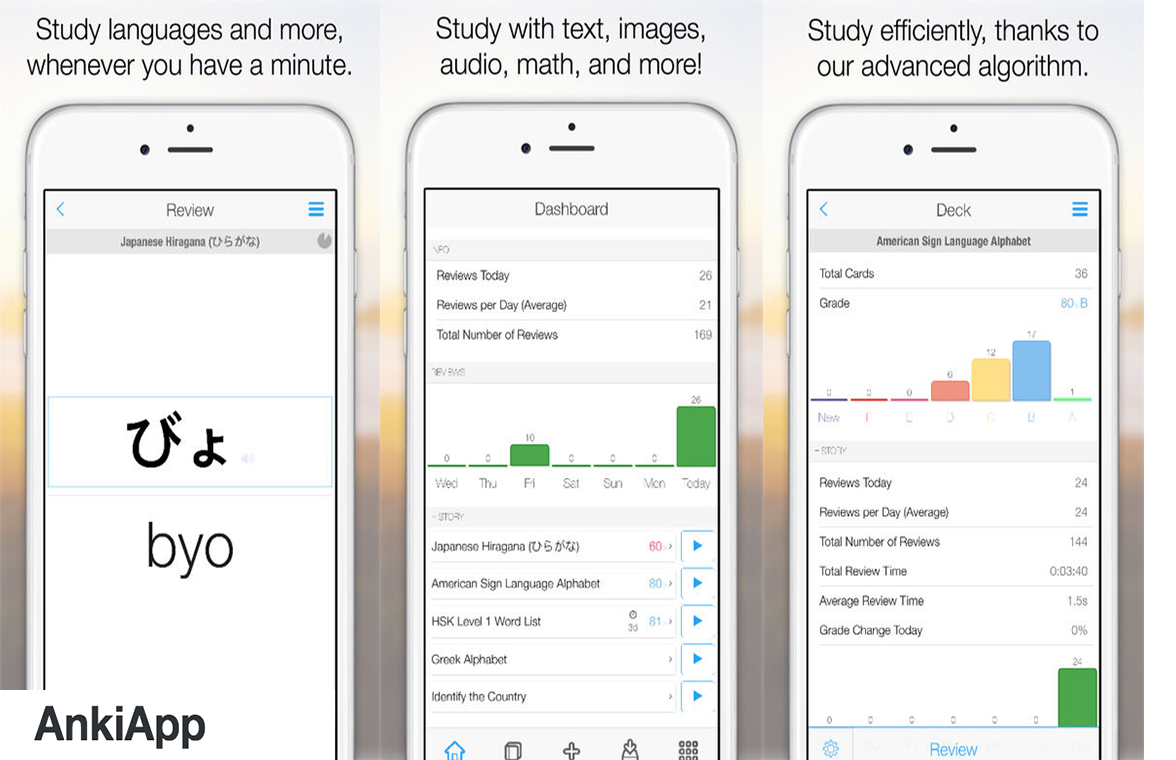Japanese Learning Tips

Japanese
[Last updated 2021/04/03]
I’ve been asked “how I studied Japanese” a number of times and thought it would be worth documenting what I found useful.
Consider this a mixed bag of tips and tricks. By no means is this a full guide.
Who is this for?
People who are already learning Japanese and are thinking of moving to Japan (and living/communicating in Japanese). These are tips that’ll help get you to an “intermediate” level.
Why are you studying Japanese?
Seems like an obvious question, but I really think it’s worth thinking about. Learning a language in its entirety is super daunting and often unnecessary. In this case try I try to put things into MUST and WOULD BE NICE. The reality is that you’re an English speaker and that takes you pretty far no matter where you go in the world.
MUST:
- I want to be able to speak with my family in Japan
- I want to have enough Japanese to pass it on to my children
WOULD BE NICE:
- Read articles, books, etc. in Japanese
- Able to read important documents in Japanese
- Understand business level Japanese
- Have qualifications (like the JLPT N2 and N1)
- To not feel like a foreigner in Japan
For myself, the obvious focus was on conversational Japanese and listening. Reading came secondary. To a certain extent they’re all necessary, but my reading is by far my weakest skill.
Also worth mentioning, I often understand words by seeing the symbols in my head which ties back to reading.
Study Tools
Anki (flashcard app)
Anki is a flashcard app and by far the app I’ve used the most for vocabulary and kanji. It’s not an app just for studying Japanese. People use it for all sorts of subjects. It implements a space repetition system, which in simple terms means you review the-cards-you-know-the-least frequently and the-cards-you-know-the-most less frequently.
You can make your own decks. You can download other people’s decks. You can sync with your computer, ios, and android devices.

If you know anything about web, then you can also put HTML/CSS code into your Anki cards.
The iOS version is expensive ($25 USD), though I’ve used this app for literally tens if not hundreds of hours so it was justified.
Anki for kanji
For kanji I used NihongoShark’s kanji deck. It’s worth noting that NihongoShark has rebranded into NativShark or something. This article is SUPER long, but helpful on how to get started.
The important points for kanji learning are:
- learn kanji by understanding the radicals, which are the smaller parts the that symbol is made out of)
- when you review new card, edit it and write you own story for it. the more ridiculous the better
- this idea of memorising radicals was really popularised by “Remembering the Kanji,” which was written before the dawn of smart phones
Anki for vocabulary
The steps here are similar to kanji. I would just say make sure to include example sentences and make your own decks.
Online Tutoring (Preply)
I’ve used sites like “preply” for online tutoring. It’s cheaper than you think and there are a lot of tutors. My tips are try a lot of tutors and that the more you bring into it the more you get out of it. If you’re expecting to find a tutor that’ll have a pre-determined course then I think what you’re expecting is more like a school. There definitely are tutors on Preply that just walk through a textbook, but I’d say skip that. Preply is great for conversation practice, for answering questions you’ve been having in your own studies, etc..
There are other online tutor tools out there! I just used Preply specifically.
Dogen (pronunciation training)
I really think pronunciation is underrated when learning Japanese. It’s certainly not emphasized by any teachers I’ve encountered until later on. In fact you often hear that Japanese is flat and there really isn’t any pronunciation to learn. That is WRONG.
In my experience, if you get the pronunciation even a little bit right then people take you MUCH more seriously. This was certainly the case when I learned french and has been the case with Japanese too.
As early as possible it’s worth putting the idea in your head that there are pronunciation rules in Japanese. There are four main types (maybe 5?) you need to consider: heiban, nakadaka, atadaka, and .. well I’ve forgotten the names.
Once you know the rules are there, though, then you’ll naturally start to pay attention to pronunciation.
Dogen offers a paid course on Patreon. Basically you’re paying for access to all his videos (iirc you get a login for a Heroku app— for those reading this who are programmers). He’s done a really good job so I would suggest at least doing the first 10-15 videos. It’s actually really fun and you might end up doing more (there were well over 60 when I did it a few years ago).
At minimum, spend the time and learn what the pronunciation shapes are in Japanese. It’ll teach you about the origin of words, how to deal with particles, and just put this important idea in your head that intonation in Japanese exists.
Bilingual News (Podcast)
I love podcasts and this one is definitely one of my favorites. English and Japaense conversation that is not rehearesed and is about actually interesting topics like astronomy, psychology, science, pop-culture, etc.. It’s the most popular podcast in Japan (though podcast aren’t exactly super popular here). You can fill in the gaps using the English side. I also just find their conversations super interesting so I would listen even if it wasn’t in Japanese.

General Advice
- Find a Japanese movie you like and watch it over and over again. This is advice I got from Dogen and it makes complete sense. It helps with your listening, your speaking, and gives you repeatable sentences that eventually you’ll be able to recall in your head. If you watch a different Japanese movie every time (especially as a beginner) then you don’t get any real reinforcement. Imagine being able to recall dialog from a movie in a language you don’t understand at all. To a degree that’s what you’re aiming for. You’re building a cadence for the language in your mind.
- Movies I like: Ping Pong, Wood Job, Waterboys, Survival Family, Shoplifters, etc.
- I watched “Shall We Dance” which was on youtube for free (maybe it still is)
- If you can get English and Japanese subtitles then that’s great. Eventually you’ll want no subtitles
- Pick a movie that you can watch over and over
- Avoid anime at least for this specific purpose
- Hack your existing habits when finding time to study. Every evening at 7pm is not a great time to study. Things come up, maybe you’re tired, maybe you’re out. Find something that you already do every day at use that time to study. For example, lunch. I eat lunch almost every day, which means I can squeeze in some studying at that time fairly consistently.
- Kanji sucks, but only at first and it’s useful. Learning kanji at the start seems daunting, but if you use an app like Anki then you’ll learn quickly.
- There are a lot of times where I remember a word because I can see the kanji in my head. Furthermore, there are a lot of kanji words I know the meaning of but don’t know how to pronounce.
- Kanji is actually really fun once you get into it
- ONLY learning kanji is not good. I’ve met many people (perhaps even I could be included as one of these people) who put all their time into just kanji. You will be surprised how not-useful your kanji is with speaking and real-time events.
- Consider your current context and act accordingly. If you’re not living in Japan at the moment then your access to daily Japanese conversation is probably basically none. Private tutors, language exchanges, etc. are all good ideas, but consider this: memorising kanji and vocabulary takes tons of time no matter if you’re living outside or inside Japan. At least for me; I am not a sponge that retains a word as soon as I learn it. Memorisation tasks like vocabulary and kanji are things you can easily do even if you’re not in Japan (and they just take time so start now). Likewise, watching movies and listening are also things you can do in advance.
- Note about above: there’s a strong argument to be made that if I learn new words in Japan that they’ll stay in your head then because you’ll have practical reasons to use them. Although that’s definitely true, once you’re in Japan you’ll quickly lose track of all the new words you need just to get by.
- Consider the JLPT, but it might not be necessary. Japanese Language Proficiency Test. The measuring stick for Japanese ability among foreigners and companies (notice I did not say Japanese people) is the JLPT. N1 is the hardest and N5 is the easiest.
- If you need it for a job requirement then take it.
- If it’s a matter of pride, then sure go ahead.
- If you think that by taking it you will be able speak Japanese then forget it.
- However, if you need motivation to learn a ton of vocabulary then the JLPT N2 isn’t such a bad choice. The grammar and vocab up until the JLPT N2 is pretty good.
- JLPT N1 is often criticised for being to esoteric and focused on “old” or “super formal” Japanese and I think that’s true, but it’s also full of fun words and more interesting topics. But the JLPT N1 should be a pipe-dream and not a real focus. The vast majority of people who pass the JLPT N1 know kanji symbols because they speak another asian language or they just enjoy torture. Seriously consider the N1 if you’re in Japan for the long haul. At that stage it has actual value.
- On the note of jobs, if JLPT is required then usually it’s N2 level and sometimes N1.
- JLPT N3, N4, and N5 are not used at all for employment. They’re just for fun?
- Passing the JLPT is probably 60% actual Japanese knowledge, 40% test planning strategy. That is to say, you have have to really consider the format of the test if you’re taking it seriously.
- JPLT does not test ACTIVE skills (speaking and writing) only PASSIVE (reading, listening, etc.)
Choose wisely, but don’t make the JLPT some sort of pedestal. It’s not the hill you want to die on, trust me. I like the JLPT because it forced me to learn a bunch of vocabulary and grammar.
- It takes time. Learning and memorising just takes time. Reinforcement it what makes it stick. A single 2 hour study session, in my opinion, is not as useful as four 30 minute study sessions. You need time for the information to marinate in your head and hopefully create a neural pathway that wants to stick around. Be patient, but also be diligent.
Conclusion
In my experience, with language learning there are TONS of great ways to waste your time studying things and still end up with nothing. BUT you also have to try some of the bad to know what’s good. If you’re serious about learning then you’ll have to actively commit. Having goals makes that a lot easier. Having a strategy is also important to reduce wasted time.
Be flexible.
Be adaptable.
Be patient.
Everyone learns differently, so adjust the recipe accordingly. Add salt when necessary.

